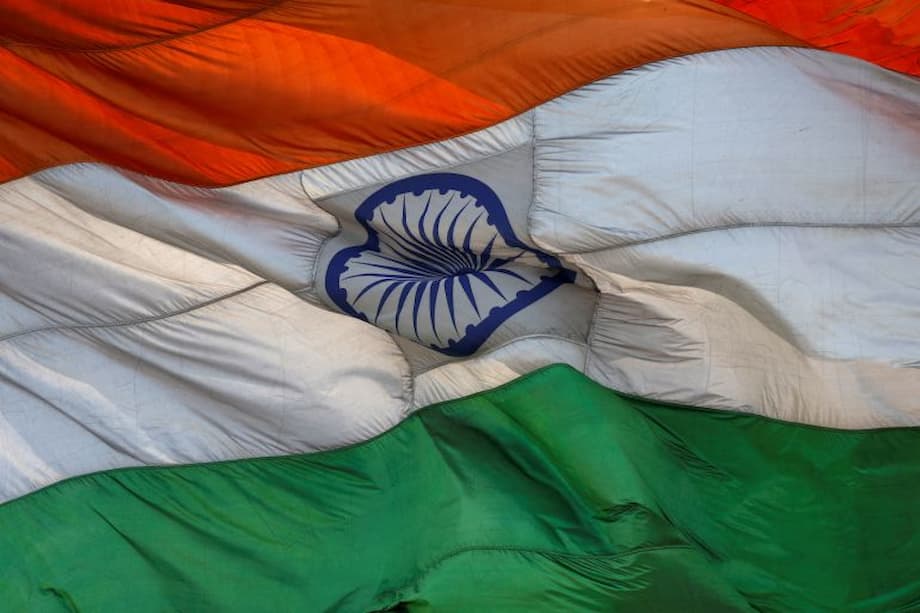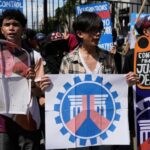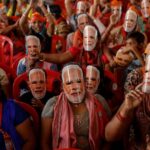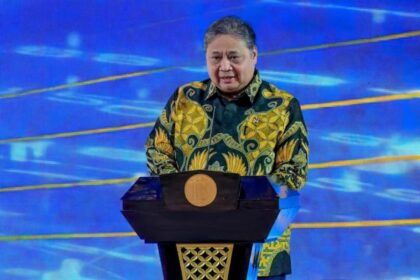Why travel status has become a pressure point
A growing number of journalists, academics, activists and critics of the Indian government now face a risk that did not exist a decade ago. Their ability to enter India, study there, report from the ground or even attend family events can be withdrawn with little notice. At the center of that shift is the Overseas Citizen of India card, better known as the OCI. Recent cancellations, including that of British academic Nitasha Kaul, have drawn attention to how immigration controls can be used to muzzle dissent beyond India’s borders and to shape the conversation at home.
- Why travel status has become a pressure point
- What is an OCI card and how can it be revoked
- Who is being targeted and what their cases show
- Courts, due process and the question of transparency
- Kashmir helps explain the crackdown
- A climate of fear reaches the diaspora
- What this means for India and its partners
- What rights groups and legal experts propose
- The Bottom Line
Kaul’s notice accused her of anti India activities but did not spell out specific acts. Rights advocates say that vagueness is the point. It creates a climate of uncertainty that discourages critical speech. More than 4 million people worldwide hold OCI status, which allows visa free entry, long term stays and a practical link to family and work in India for people of Indian origin who hold foreign passports. Losing that card has personal and professional costs, and it carries a signal to others who may be watching and self censoring.
Media watchdogs and human rights groups say the trend has intensified in recent years. Over the past nine years, more than 120 OCI registrations have been cancelled, with a surge reported in 2024 and continuing into 2025. Those most affected often share a profile. They report on sensitive subjects, research state policy, or speak publicly about rising majoritarian politics and the treatment of minorities. Indian authorities say cancellations are legal, necessary in some cases for national security, and consistent with the Citizenship Act. Domestic courts have sometimes pushed back, which points to a contested legal arena where fundamental rights and executive discretion are in tension.
What is an OCI card and how can it be revoked
The OCI is not dual citizenship. It does not grant voting rights or eligibility for public office. It does offer a lifelong visa, work and study permissions and an emotional bridge for people of Indian origin or foreign spouses who build lives across borders. For families, it can be the difference between a seamless visit to parents and siblings and a slow and uncertain visa process. For journalists and scholars, it can underpin years of fieldwork, interviews and archival research.
What Section 7D says
Section 7D of the Citizenship Act 1955 sets the grounds for cancelling an OCI registration. Those include fraud during the application, activities considered against the sovereignty and integrity of India, security of the state or friendly relations with foreign states, or acts creating disaffection toward the Constitution. The law also provides grounds related to criminal sentences within a specified period after registration. In practice, cancellation notices often cite broad national security or anti India activity language without detailed evidence in the public domain. Rights lawyers argue that this opacity limits a fair chance to contest the decision.
The 2021 rules that changed the deal
In 2021, India tightened rules on what OCI cardholders can do without special permission. Research, missionary work and journalism now require prior approval, and OCI journalists are expected to hold an appropriate work visa. Reporters Without Borders has documented uncertainty over permits and accreditation, and says this bureaucracy has pushed some foreign and diaspora reporters away from sensitive beats or out of India entirely. The result is a chilling effect that reaches well beyond those who receive a cancellation notice.
Who is being targeted and what their cases show
Cases now span continents. Sweden based academic Ashok Swain saw his OCI cancelled, contested it, and won in court. Reuters cybersecurity reporter Raphael Satter had his OCI revoked after he published a detailed investigation into hacking linked to an Indian company. He has sued to restore his status, arguing that the decision punished legitimate reporting and cut him off from family ties in India. British writer Aatish Taseer lost his OCI in 2019 shortly after he wrote a critical cover story on Prime Minister Narendra Modi. French journalist Vanessa Dougnac, who lived and reported in India for decades, left after fights over her residence status and accreditation. The pattern, rights groups say, is consistent. People who scrutinize powerful interests or challenge dominant narratives face pressure through visas, accreditation or OCI status.
Satter’s case underlines how immigration tools can intersect with lawsuits and other forms of pressure. India West reported that the revocation arrived alongside a defamation suit filed in India over his reporting, and that warnings about potential diplomatic consequences were relayed to him during his investigation. He has framed the decision as a mistake or misunderstanding that should be corrected by the courts once the facts are reviewed.
Press freedom groups describe a broader change in tone. After interviews with reporters, Reporters Without Borders concluded that a mix of red tape, opaque permissions and the threat of cancellation now shapes editorial choices for many foreign and diaspora journalists in India. The organization summarized the pressure bluntly after documenting multiple cases.
Reporters Without Borders said its investigation found that journalists are effectively blackmailed regarding their OCI status, which has led some to self censor or even leave the profession.
Courts, due process and the question of transparency
Indian courts have shown a willingness to question arbitrary use of executive power in some OCI cases, and that review has mattered. When decisions are quashed, judges often cite a lack of evidence, insufficient opportunity to respond or a failure to follow the law’s own procedures. Even so, the appeals journey can be long and expensive. Notices are often terse. The reasons are sometimes not disclosed in full to the person targeted. Lawyers say this secrecy undermines the right to defend oneself and encourages self censorship among others who see that the process can itself become the punishment.
Officials point out that the state must retain tools to protect security and public order. That is why Section 7D exists. The hard policy question is how to prevent abuse while preserving those legitimate functions. A narrower scope for national security claims, clearer standards for evidence, and guaranteed timelines for hearings are among the fixes proposed by rights advocates. Until those safeguards are in place, critics argue, the line between lawful revocation and punitive censorship will remain blurred.
Kashmir helps explain the crackdown
The tightest pressure has been felt in Kashmir, where the government revoked the region’s special status in 2019. Since then, according to Amnesty International, authorities have imposed travel bans, revoked passports, expanded the use of the Public Safety Act and the Unlawful Activities law, and cancelled some OCI registrations. Amnesty says these tools have been used to suppress reporting, advocacy and political activity, and that court challenges take longer than they should.
In a statement ahead of state elections, Amnesty International criticized the growing use of travel restrictions and detentions that silence critical voices in the region.
Amnesty International said Indian authorities must stop using restrictive travel bans and arbitrary detentions under stringent anti terror laws to intimidate dissenting voices from speaking out on Jammu and Kashmir.
Amnesty also pointed to data suggesting a steep rise in detentions under special security laws and to a rise in passport revocations or delays that block travel for journalists and activists. The pressure does not only affect those living in the region. Some members of the diaspora who speak about Kashmir say they face visa hurdles or sudden cancellations when they try to enter India.
A climate of fear reaches the diaspora
The consequences now travel well beyond India’s borders. A Vox investigation quoted activists and journalists in the United States who described threats, harassment and attempts to influence their coverage or public speech. The point, they said, is to make criticism feel personally risky. That fear often lands on family members who still live in India. The United States State Department’s 2024 human rights report cited transnational repression, harassment and the revocation of travel documents among the methods that have been reported by civil society groups.
Reporters Without Borders notes that since 2019, losing an OCI can lead to blacklisting and a future entry ban, which magnifies the risk for anyone who still needs to travel to India for work or family reasons. Surveys of diaspora communities convey the same anxiety. A poll of British Indians cited by advocacy groups found that a large share worry about India’s direction but hesitate to speak publicly because they fear losing access to the country. When silence becomes the safest choice, the public conversation narrows and democratic accountability suffers.
What this means for India and its partners
The stake is larger than any single visa case. India’s diaspora supports families, charities, universities and startups, and sends very large sums home. World Bank data reported by India West show an estimated 129 billion dollars in remittances reached India in 2024, more than double the year’s foreign direct investment. That flow funds education, health care and small businesses, and it cushions communities during shocks. A policy approach that alienates critical voices in the diaspora risks weakening a source of economic and social strength.
There is also a knowledge cost. When researchers and journalists avoid travel, certain stories go untold and important data do not get collected. Universities lose collaborations. Conferences move elsewhere. Partners in the United States and Europe face a tradeoff between strategic engagement and quiet acceptance of pressure on speech. Rights groups such as Human Rights Watch urge governments to raise these issues in bilateral talks, and to insist that legitimate criticism and independent reporting not be treated as threats to national security.
What rights groups and legal experts propose
Advocates inside and outside India have outlined practical steps to reduce harm while preserving state security powers where truly needed. Their proposals aim to bring clarity, reduce arbitrary decisions and protect speech that is lawful in democratic societies.
- Publish clear, narrow criteria for cancellation under Section 7D and link them to concrete evidence that can be contested.
- Guarantee timely notice, access to reasons and a meaningful hearing before cancellation, except in urgent cases where a rapid post decision review is assured.
- Create an independent review panel with judicial oversight for appeals, with deadlines to prevent indefinite limbo.
- Revise the 2021 rules to clarify journalism and research permissions for OCI holders, and establish a fast, transparent process for work visas and accreditation.
- Protect family unity in cancellation decisions to avoid collective punishment through blacklisting that strands spouses and children.
- Publicly track and report aggregate data on cancellations, travel bans and passport revocations to enable scrutiny.
- Affirm that criticism of government policy, advocacy on minority rights and human rights research are protected activities, not grounds for cancellation.
The Bottom Line
- India has expanded the use of visas, work permits and OCI cancellations in ways that critics and rights groups say chill dissent at home and abroad.
- Section 7D of the Citizenship Act allows cancellation of OCI status, but vague notices and secrecy around evidence have raised due process concerns.
- Cases involving scholars and journalists, including Nitasha Kaul, Raphael Satter and Ashok Swain, show how cancellations touch both diaspora communities and foreign reporters.
- Amnesty International and Reporters Without Borders document a wider pattern that includes travel bans, passport revocations and a climate of self censorship.
- US officials have recorded reports of transnational repression, while diaspora surveys indicate many fear that speaking out could cost them the right to visit India.
- India’s diaspora sent an estimated 129 billion dollars in remittances in 2024, a reminder that the relationship is vital to families and the economy.
- Rights advocates call for narrow, transparent rules, independent review and clear protections for journalism and research so legitimate criticism is not punished.












